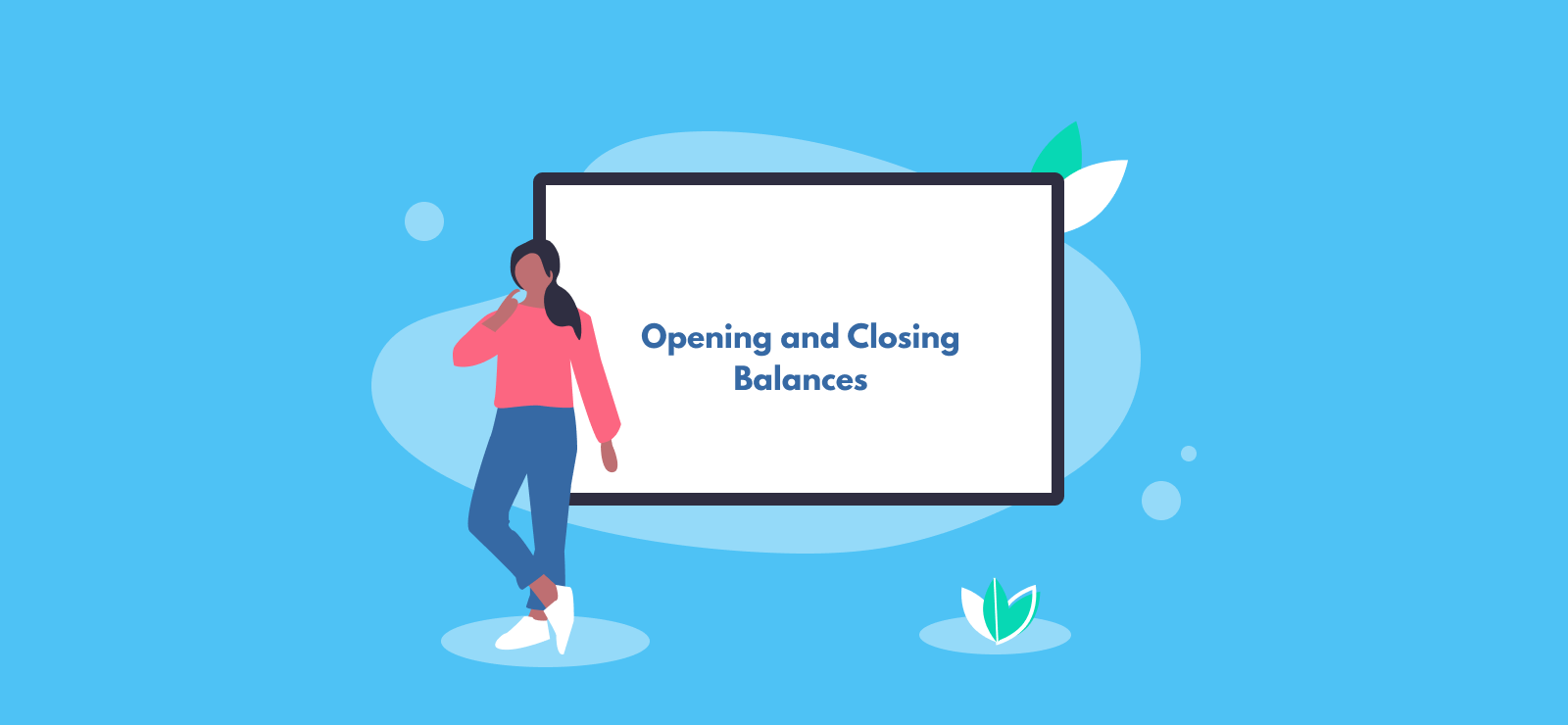

Understanding Accounting Terms: Opening and Closing Balances
Business accounting is awash with all sorts of terminology, so our jargon-busting series of accounting FAQs explains common accountancy terms to help you understand exactly what everything means.
This time we’re covering opening and closing balances. You’ll come across these as soon as you do your accounts, or start a new financial period.
What is an opening balance?
An opening balance is the balance of an account at the start of an accounting period. Unless this is your first ever accounting period, it’s brought forward from the closing balance of the previous accounting period.
When you start a new business your opening balances are zero, unless you spent money before setting it up. Money from investors or lenders will be entered as transactions during the accounting period.
What is a closing balance?
The closing balance is the amount remaining in an account at the end of an accounting period. Again, this can be a debit or credit (a positive or a minus), after recording all the transactions for that period in your bookkeeping.
To find the closing balance of an accounting period, calculate the total credits and total debits for that period, and work out the difference between them. This balance is what you’ll bring forward as your opening balance in the new accounting period.
What are opening and closing balances for?
If you switch from one accounting system to another, your opening and closing balances are key to starting your new records accurately.
It’s important to include the opening balances in your accounts to avoid skewing the figures for that accounting period. Failing to do so could, for example, show less or more liabilities, less or more assets, less or more capital, and so on. Not a strong basis for decision making!
Can I use accounting software to work them out?
Accounting software (such as our very own Pandle!) automatically generates opening and closing balances in your reporting, so you don’t have to think about them.
The beauty of cloud accounting software is that you can load up your records wherever you are rather than waiting to get back to your desk, so you’ll always have a real-time view of your business’ finances.
Our online accountants and bookkeepers can help you manage your accounts. Learn more about our online accounting services. Call us on 020 3355 4047, and get an instant online quote.
Want to learn more?
Subscribe to our newsletter to get accounting tips like this right to your inbox

Read more posts...

The Accountancy Partnership – Our Positive Reviews
16th February 2026We’re proud of our customers’ reviews here at The Accountancy Partnership The reviews we receive from our customers show how hard we…
Read More
Maternity Pay for Self-Employed People
15th February 2026As a self-employed person you might be eligible to get Maternity Allowance payments for up to 39 weeks. It’s different to Statutory…
Read More
National Insurance for the Self-Employed
14th February 2026If you work for your own self-employed business, then you may need to pay National Insurance on the profits that you earn….
Read MoreConfirm Transactions
The number of monthly transactions you have entered based on your turnover seem high. A transaction is one bookkeeping entry such as a sale, purchase, payment or receipt. Are you sure this is correct?
Please contact our sales team if you’re unsure
VAT Returns
It is unlikely you will need this service, unless you are voluntarily registered for VAT.
Are you sure this is correct?
Call us on 020 3355 4047 if you’re not sure.
MTD IT Quarterly Updates
Your final, end of year MTD Income Tax submission is included in your fee.
You can submit the quarterly updates yourself using Pandle, or alternative bookkeeping software (which we recommend).
However, if you would prefer us to submit these updates, there is an additional fee of £35.00 per month.
Call us on 020 3355 4047 if you’re not sure.
Bookkeeping
You will receive our bookkeeping software Pandle for free, as part of your package.
You can use this to complete your own bookkeeping, or we can provide a quote to complete your bookkeeping for you.
Please select and option below:
Call us on 020 3355 4047 if you’re not sure.

